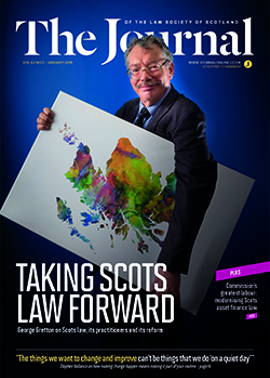Income tax: really becoming simpler?
Most legal firms operate as a partnership or LLP, which, for tax purposes, means each of the partners are self-employed.
There has been little variation to the way self employed individuals assess and pay their tax since the introduction of self-assessment in the 1990s, but HMRC are now proposing a number of changes which are timetabled for implementation across the next few years, some of which will have an impact on the amount of tax due.
Firstly, the introduction of Making Tax Digital (MTD) means that those with annual trading profits and/or property profits in excess of £10,000 will have to maintain digital records and submit quarterly updates to HMRC from April 2023. A “final declaration”, to report other sources of income and calculate total tax liabilities, will replace the tax return, although tax payment dates will remain the same. Currently, the self-employed report their profits according to the accounting year end which falls in the tax year. For example, if accounts are drawn up to 31 October each year, then an individual’s tax return for the 2021-22 tax year will report the profits earned in the year to 31 October 2021.
The second change involves HMRC “simplifying” this system from 2023-24 to report profits earned in the tax year, rather than the accounting year. Using the same example, this means that the 2021-22 tax year would include 7/12ths of the profit to 31 October 2021 and 5/12ths of the profit to 31 October 2022. HMRC are of the view that this will enable taxpayers to understand more readily what they need to report under MTD.
It is true that the current system of aligning accounting profits to tax years can be complicated, particularly in the first three years of trading and on cessation. Taxpayers find it difficult to understand “overlap relief” where they have an accounting year end that isn’t the tax year end, and the current system is not always to the taxpayer’s benefit, particularly where there are movements in tax rates between when overlap profits are accrued and relieved.
Transition phase
HMRC propose there will be a transition year in 2022-23 whereby taxpayers will align their profits with the tax year end and relieve any overlap profits. Our example means that in 2022-23 the taxpayer will be taxed on the profits to 31 October 2022 plus the five months to 31 March 2023 less any overlap profits accrued when the business began. For some, this will create “excess profits”, pushing taxpayers into higher rates of tax, restricting personal allowances and reducing capacity to contribute to pension or claim child benefit. HMRC propose allowing excess profits to be spread over five years to ease the tax and cash flow pressures of the change.
Another issue is the timing of accounts preparation. In our example, the accounts to 31 October 2022 would need to be finalised by 31 January 2023 to report profits accurately for the 2022-23 tax year. In the event that accounts are not final, HMRC will allow estimates to be submitted that can later be amended either by updating the return or by adjusting the position in the following tax year.
Still time to speak up
At present, the above proposals are at consultation stage. Already, a number of professional bodies have called for a delay in implementation when the move to MTD will be challenge enough. We expect partnerships both large and small may struggle to deal with the additional administrative burden, and for those recovering from the impact of COVID-19, finding extra cash to pay accelerated tax liabilities will be testing: we would encourage them to speak to their accountants or business advisers for advice.
Regulars
Perspectives
Features
Briefings
- Civil court: Legacy of COVID
- Corporate: The enigma of economic duress
- Employment: where will work be found?
- Intellectual property: David v Goliath battle continues
- Agriculture: Crofting disputes: some first principles
- Sport: Arbitration – within the rules?
- Property: ADS: the hidden traps
- In-house: On harm, stakeholders and risk management
In practice
- Ask Ash: Colleague's chat is my privacy
- Lockdown no more
- The Word of Gold: The potency of passion
- Get interactive at the Law and Technology Conference
- Ten red flags for conveyancers
- The Eternal Optimist: So, what do you want to be?
- Commissary: the top 10 failings
- Mobility challenges – and the kindness of strangers
- When all is remote







